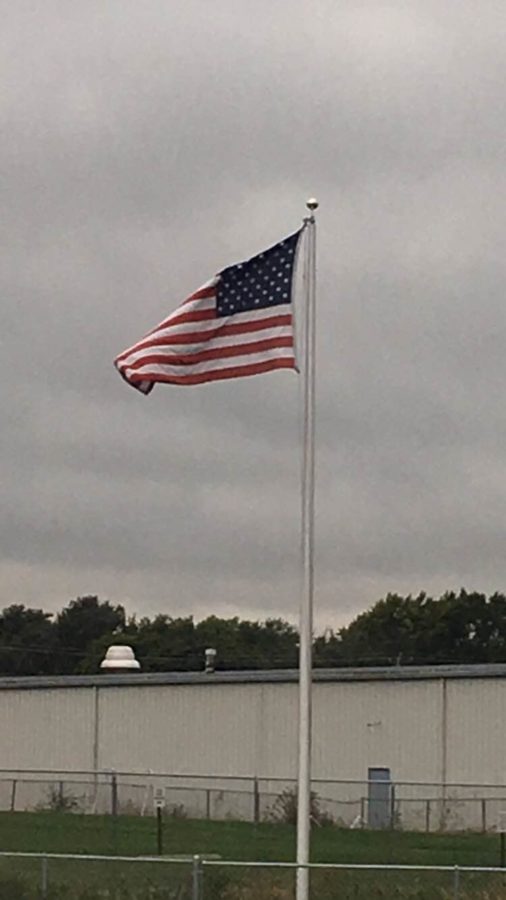Sitting To Take a Stand
Kaepernick sparks national conversation by sitting during the National Anthem.
More stories from Alex Ruano
American Flag
San Francisco quarterback Colin Kaepernick strikes controversy as he decided to sit during the National Anthem. The NFL star refused to stand, hoping his actions would raise awareness of the issues affecting minorities in the United States. One man’s decision to stay seated struck great national conversation.
“I feel that Kaepernick had the given right to do as he pleased, understanding that he is rightful in doing so, but also rightful in accepting the consequences that would soon follow,” senior Matthew Jelinski said.
Once Americans got view of Kaepernick’s protest, many became furious. NFL fans began to burn his jersey as they cursed his name and demanded punishment. Across the web and social media, thousands took the protest as disrespectful and dishonorable. However, simultaneously Americans around the world appreciated his act of bravery. In the end, Kaepernick came out successful. He accomplished his goal by sparking great national conversation as he influences others to stand up by sitting down.
“I feel that Kaepernick should not be socially contused by his actions, as free will is not free if you get to pick and choose. But, once again, anyone has the right to be angry, just as he had the right to do as he did,” Jelinski said.
Kaepernick does not sit alone. Seahawks’ Jeremy Lane has sat in the last four preseason games in protest. Lane sits in support of Kaepernick but more importantly in support of their cause. Both athletes use their their status and platform to bring attention to the issues affecting minorities in America. Also in support of their decision, USA Women’s Soccer player Megan Rapinoe took a knee during the playing of the Star Spangled Banner. Rapinoe knelt as “a nod to kaepernick.” Unlike Kaepernick, Rapinoe represents USA and she plays on a national team. Rapinoe uses her high status to bring up a conversation that is far bigger than sports.
Kaepernick inspired Denver Broncos’ Brandon Marshall to take a knee during the national anthem at the NFL’s first 2016 game.
During the NFL’s first Sunday kickoff, many athletes supported Kaepernick, between the Miami Dolphins and the Seattle Seahawks, the Dolphins’ Jelani Jenkins, Arian Foster, Michael Thomas, and Kenny Stills took a knee during the national anthem. Also joining the fight is Marcus Peters, a cornerback for the Kansas City Chiefs. Peters held his right fist in the air during the national anthem before the Chiefs first kickoff of the season. Peters wore a black glove to reminiscent the famous protest by US track and field athletes Juan Carlos and Tommie Smith in the 1968 Olympics. The Olympians demonstrated political protest against inequality in our country. Along with Peters, the New England Patriots’ Devin McCourty and Martellus Bennett stood with their fists raised.
“The idea of freedom does not contain a shield from consequence. If the NFL, a business, were to take action against Kaepernick and others, disregarding any moral standards anyone may have, they have the right to; although if they were to illegally cut his contract short, – a contract of which I am quite sure does not include a clause that forces him to stand during the anthem – that would be unacceptable,” Jelinski said.
Kaepernick’s wave of national conversation has spread far past the professional sports league. Garfield High School football players joined Kaepernick as the kneed during the national anthem before a big game. The young athletes joined the movement to support Kaepernick and bring attention to the injustices nationwide along with problems students face on a daily basis.
Overall, Kaepernick accomplished his goal of spreading awareness as his action even brought the attention of President Obama. Although he slaughtered his own name, he also rose up in the eyes of others and his own personal belief. Kaepernick stood up for what he believed in and influenced courage into the hearts of many. Kaepernick plans to donate an estimated one million dollars to various causes affected by racial injustice and police brutality.

